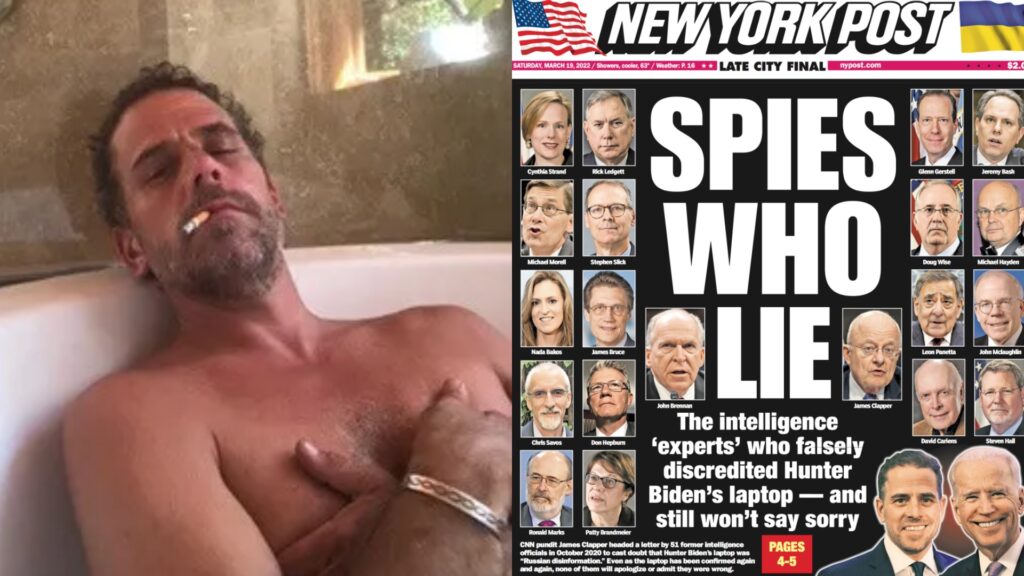The second presidential debate of 2020 became a focal point of controversy, as Joe Biden and ABC reporter Kristen Welker appeared to conspire against President Trump. During the debate, Biden interrupted Welker to address the allegations surrounding the Hunter Biden “Laptop from Hell” scandal, asserting that 50 intelligence officials signed a letter claiming the laptop was “Russian propaganda.” This assertion was later proven to be false, as evidence emerged that indicated the laptop’s authenticity and its connection to Hunter Biden’s questionable activities. The suggestion by Biden, therefore, raises substantial ethical questions about his honesty and accountability during a critical moment in the election campaign.
The controversy deepened with the realization that the 51 intelligence officials who alleged the laptop was part of a Russian operation were purportedly aware of its legitimacy. Along with Biden, media outlets also played a significant role in perpetuating this narrative. The materials retrieved from the laptop—reports, emails, and explicit visuals associated with Hunter Biden—contradicted the claims presented by the intelligence community and by Biden. Notably, after Joe Biden assumed the presidency, connections emerged implicating Tony Blinken, the Secretary of State, in orchestrating the narrative that dismissed the laptop as Russian disinformation, thereby obscuring its real implications.
Tony Blinken’s role highlighted the entangled relationships between intelligence officials and political narratives during the election cycle. He was reportedly instrumental in gathering signatures from various partisan intelligence figures who were keen to denounce the authenticity of the laptop in an attempt to undermine Trump’s campaign. The biased actions of these officials not only distorted public perception but also set a dangerous precedent for political discourse in the United States. Their motivations appeared to stem from a desire to protect the political status quo rather than serving the interests of truth and transparency.
In the aftermath of the election, the ramifications of these deceptive tactics continued to fuel political discourse, drawing criticisms not just from Trump and his supporters but also from individuals concerned about the integrity of the intelligence community. In an interview in April 2023, President Trump classified the actions of the 51 intelligence officials as treasonous. He emphasized that if he were to return to the presidency, he would advocate for revoking their security clearances and pursuing potential criminal investigations against them. This statement underscores the need for accountability and transparency within government institutions, particularly when they are weaponized for political gain.
The media’s role in amplifying the unverified claims about the laptop was another focal point of discussion. Outlets notoriously failed to investigate the merits of the allegations thoroughly, opting instead to promote narratives that aligned with their editorial biases. As a result, many Americans were misled, which ultimately compromised the integrity of the electoral process. This orchestrated dissemination of misinformation not only misrepresented the facts surrounding the Hunter Biden scandal, but it also contributed to a growing discourse about the role of legacy media in shaping public perception and electoral outcomes.
The overarching theme from the events surrounding the Hunter Biden laptop scandal suggests a significant erosion of trust between American citizens and their intelligence agencies, as well as a crisis in media integrity. With calls for investigations and accountability echoing in the backdrop, the urgency of restoring public trust in both governmental and media institutions has never been more pronounced. Ultimately, these issues are not merely about the past but are indicative of the continuing ideological and political battles that characterize contemporary American society. As discussions regarding these matters unfold, they will likely play a crucial role in shaping the future of political accountability and transparency in the United States.

